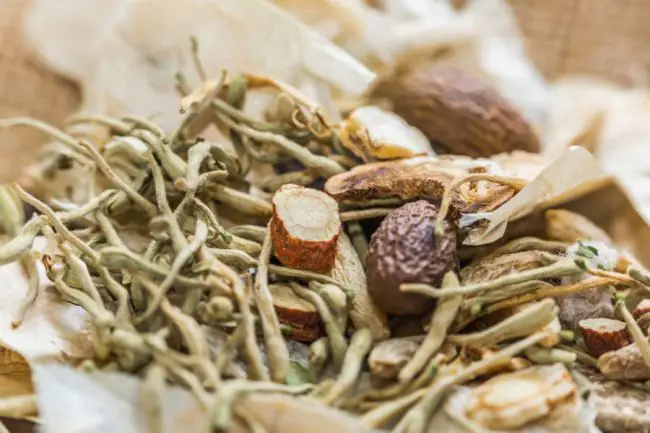Multiple sclerosis (MS) is a chronic neurological condition where the immune system attacks the protective sheath (myelin) surrounding nerve fibers. Living with multiple sclerosis (MS) can be incredibly challenging but for those looking for natural alternatives to manage symptoms like pain, fatigue, and inflammation.
While there is no cure for MS, treatments are available to manage symptoms and slow the disease’s progression. Many people with MS are turning to herbal remedies for multiple sclerosis to complement their existing therapies and find relief from some of the most debilitating symptoms.
How Herbal Remedies Can Help
Herbal remedies for multiple sclerosis have been used for centuries to promote healing and reduce inflammation, which is key for people with MS. These natural treatments often contain antioxidants, anti-inflammatory agents, and immune-modulating properties that can help:
- Reduce inflammation and pain
- Improve energy levels
- Boost cognitive function
- Support the nervous system
Here are some of the most beneficial herbal remedies for relief from symptoms of multiple sclerosis.
Ayurvedic Herbs for MS
Ashwagandha Benefits
Ashwagandha, a powerful adaptogen, is widely known for its ability to reduce stress and fatigue.
For those with MS, it can help manage both mental and physical fatigue, improving overall energy levels and well-being.
It also helps modulate the immune system, which can play a role in reducing MS flare-ups.
Thus, ashwagandha is one of the effective remedies for multiple sclerosis that is worth considering.
Chyawanprash Benefits
Chyawanprash is an Ayurvedic herbal supplement that is packed with antioxidants.
Its primary ingredient, amla (Indian gooseberry), is rich in and helps boost the immune system.
For MS patients, this can support overall health, fight off infections, and potentially reduce the frequency of relapses.
Chyawanprash is another natural option among remedies for multiple sclerosis.
Chinese Herbs for MS
Gotu Kola Benefits
Gotu Kola is a popular herb in Chinese and Ayurvedic medicine. It is believed to improve cognitive function, which can be particularly helpful for MS patients dealing with brain fog or cognitive decline.
Its anti-inflammatory properties may also help reduce nerve inflammation, offering relief from pain and discomfort. As such, Gotu Kola is a key herb in the discussion of remedies for multiple sclerosis.
Ginkgo Biloba Benefits
Ginkgo biloba is known for improving blood circulation and brain function. For individuals with MS, this herb may help improve cognitive clarity, improve coordination, and reduce fatigue.
Some studies suggest that it can also reduce muscle pain and spasms, making it one of the top remedies for multiple sclerosis symptoms.
Huo Ma Ren (Chinese Hemp Seed) Benefits
Huo Ma Ren, also known as Chinese hemp seed, has been used in traditional Chinese medicine to reduce muscle spasms and pain.
The seeds contain omega-3 fatty acids, which help reduce inflammation and improve overall health.
Many MS patients report relief from muscle stiffness and spasticity after using hemp-based products, making Huo Ma Ren an effective herb among remedies for multiple sclerosis.
Myrrh Benefits
Myrrh is known for its powerful anti-inflammatory properties, making it a valuable herb for reducing pain and inflammation in MS patients.
Myrrh may also support the immune system and promote healing, potentially reducing the severity of MS symptoms over time. It’s an excellent addition to the list of remedies for multiple sclerosis.
Additional Herbal Remedies for MS Relief
While the above herbs are some of the most commonly used for MS, there are additional herbs that may provide symptom relief.
Agrimony Benefits
Agrimony is believed to help with muscle relaxation and reduce spasms. For MS patients, it may offer relief from the muscle stiffness and cramps often experienced during flare-ups. Therefore, agrimony should be included in your search for effective remedies for multiple sclerosis.
Bilberry Leaf Benefits
Bilberry leaf is rich in antioxidants, which help protect nerve cells from damage. It also supports better circulation, which may be helpful in reducing MS-related cognitive issues. This makes bilberry leaf a valuable addition to the list of remedies for multiple sclerosis.
Catnip Benefits
Catnip isn’t just for cats! This herb has calming effects and may help reduce anxiety, a common side effect of MS.
Its ability to relax the nervous system can also provide relief from muscle tension and spasms, making it one of the more overlooked remedies for multiple sclerosis.
Chamomile Benefits
Chamomile is well-known for its calming and anti-inflammatory properties. For MS patients, chamomile tea or essential oils can help soothe irritated nerves, reduce pain, and promote better sleep. It is definitely one of the friendly remedies for multiple sclerosis to consider.
Combining Herbal Remedies with Lifestyle Changes
Healthy Diet Tips for MS Patients
Eating a well-balanced, nutrient-rich diet is essential for managing MS. Consider adding anti-inflammatory foods like leafy greens, fatty fish, nuts, and seeds into your daily meals to support your body’s natural defenses.
Combining a healthy diet with herbal remedies for multiple sclerosis can maximize symptom relief.
Importance of Regular Exercise
Regular, gentle exercise such as yoga or swimming can help maintain mobility, reduce fatigue, and improve mood.
Combining physical activity with herbal treatments may improve the overall quality of life for people with MS, further illustrating the value of remedies for multiple sclerosis.
Stress-Relief Techniques
Managing stress is important for MS patients, as stress can trigger flare-ups. Techniques like mindfulness meditation, deep breathing, or even taking time for hobbies can help reduce stress levels.
Pairing these techniques with calming herbs like chamomile or ashwagandha can provide an even greater sense of relief and align with the holistic nature of remedies for multiple sclerosis.
Consult Professionals Before Trying Herbal Remedies
While herbal remedies can be beneficial, it is important to consult with a healthcare professional before adding them to your MS treatment plan.
Some herbs may interact with medications or cause side effects, so working with your doctor ensures that you’re using these remedies for multiple sclerosis safely.
Precautions and Potential Interactions
Herbs like ginkgo biloba, for example, can thin the blood, so they may not be suitable for people on blood-thinning medications.
Always make sure to research the potential side effects of any herb you’re considering, and discuss them with your doctor to avoid complications when seeking remedies for multiple sclerosis.
Conclusion
Herbal remedies for multiple sclerosis can offer natural relief from symptoms, providing benefits like reduced inflammation, pain relief, and improved cognitive function.
From the stress-reducing properties of ashwagandha to the anti-inflammatory power of turmeric and myrrh, these herbs have the potential to improve your quality of life.
Combining herbal treatments with a healthy diet, regular exercise, and stress management techniques creates a holistic approach to managing MS symptoms.
Always consult a healthcare professional before adding new treatments into your routine, ensuring that your choice of remedies for multiple sclerosis is safe and effective.
FAQs
How to naturally reverse MS?
While there is no known cure for MS, lifestyle changes such as a healthy diet, regular exercise, stress management, and herbal remedies for multiple sclerosis can help manage symptoms and potentially slow progression.
What does ginger do for MS?
Ginger is known for its anti-inflammatory properties and may help reduce pain and inflammation in MS patients, serving as one of the beneficial remedies for multiple sclerosis.
What supplements should you not take with MS?
Some supplements, like St. John’s Wort, can interfere with medications commonly used to treat MS. Always consult your doctor before adding new supplements to your routine, especially when considering herbal remedies for multiple sclerosis.
Why can’t people with MS take ashwagandha?
Ashwagandha may stimulate the immune system, which could be problematic for individuals with MS on immunosuppressant therapy. Consult your doctor before using it, as your choice of remedies for multiple sclerosis should align with your treatment plan.







